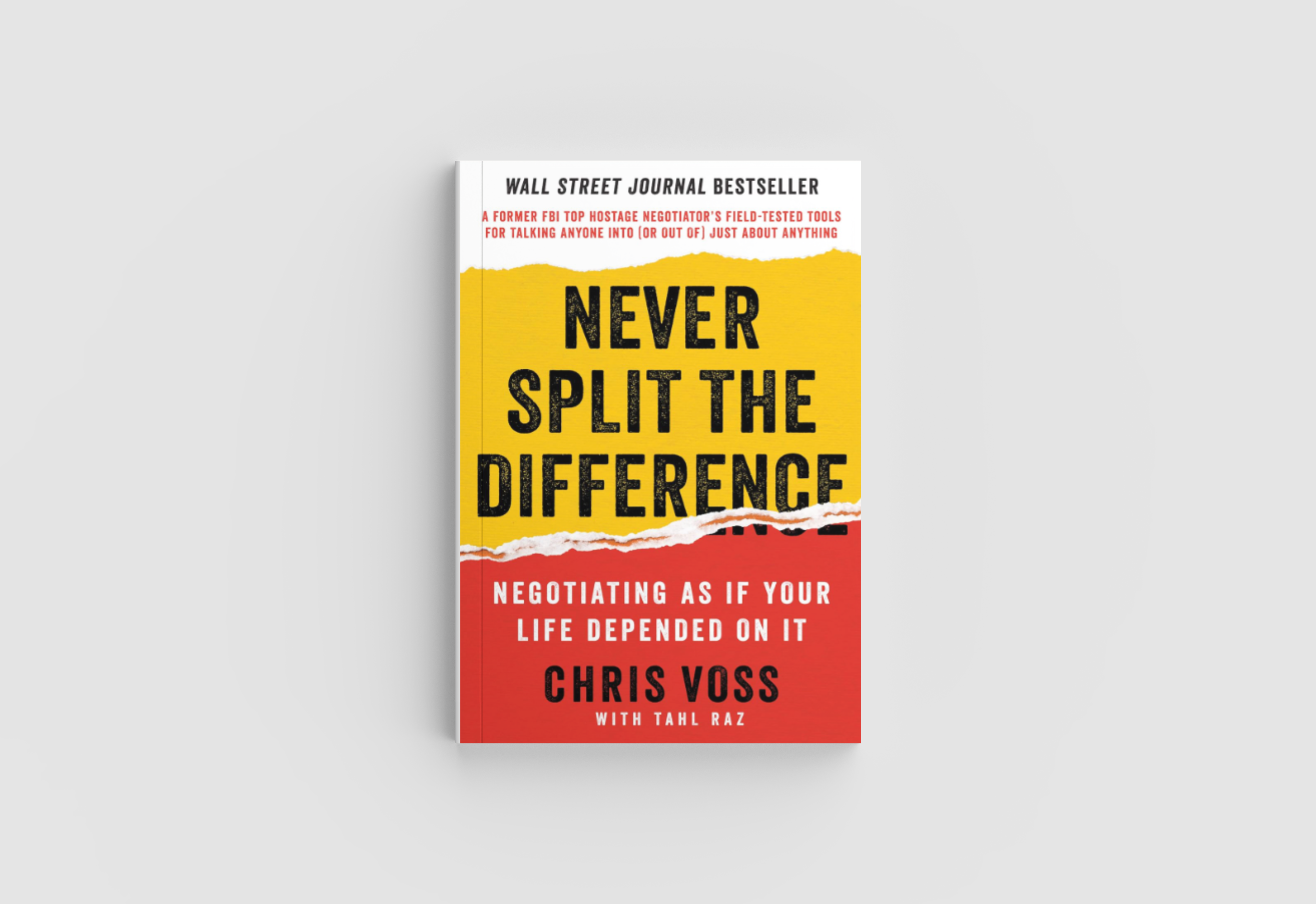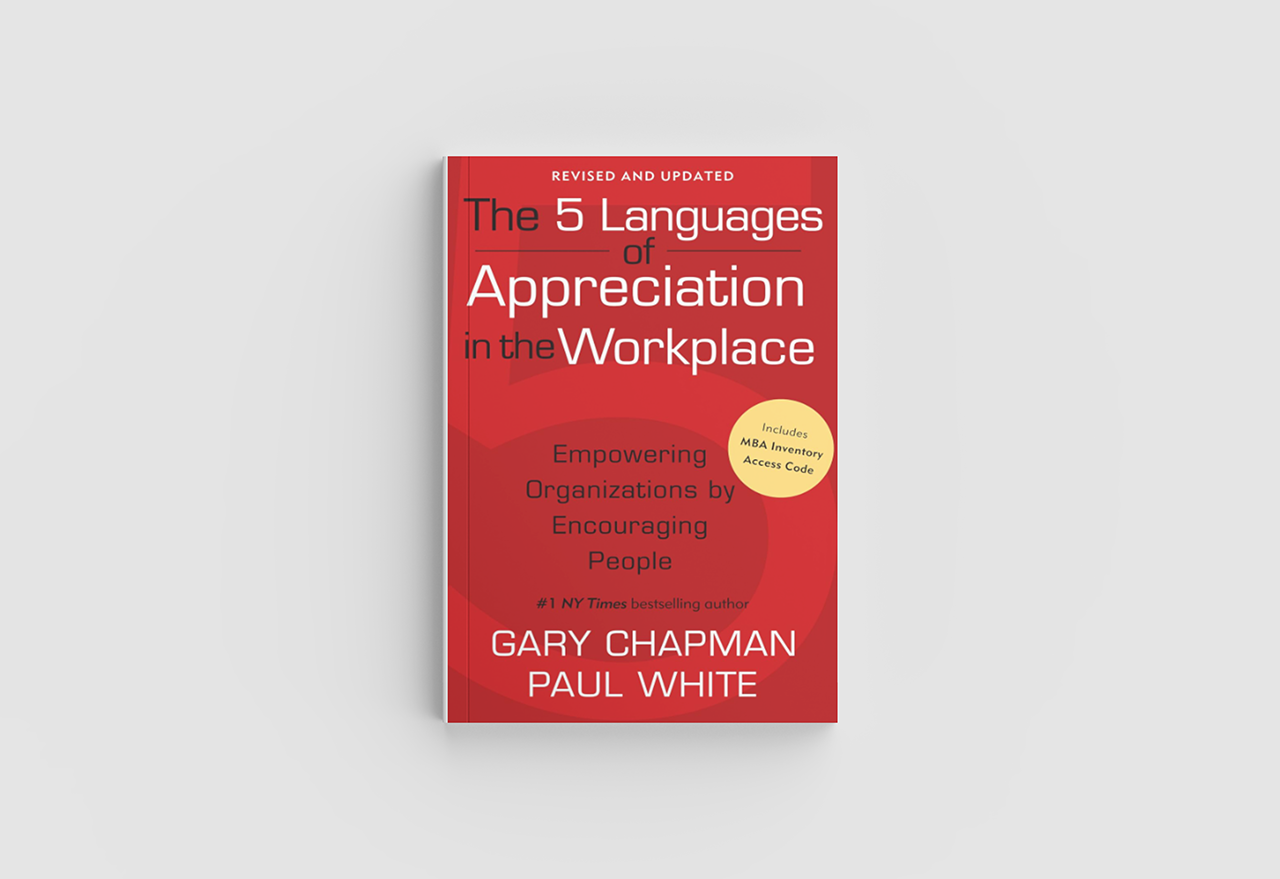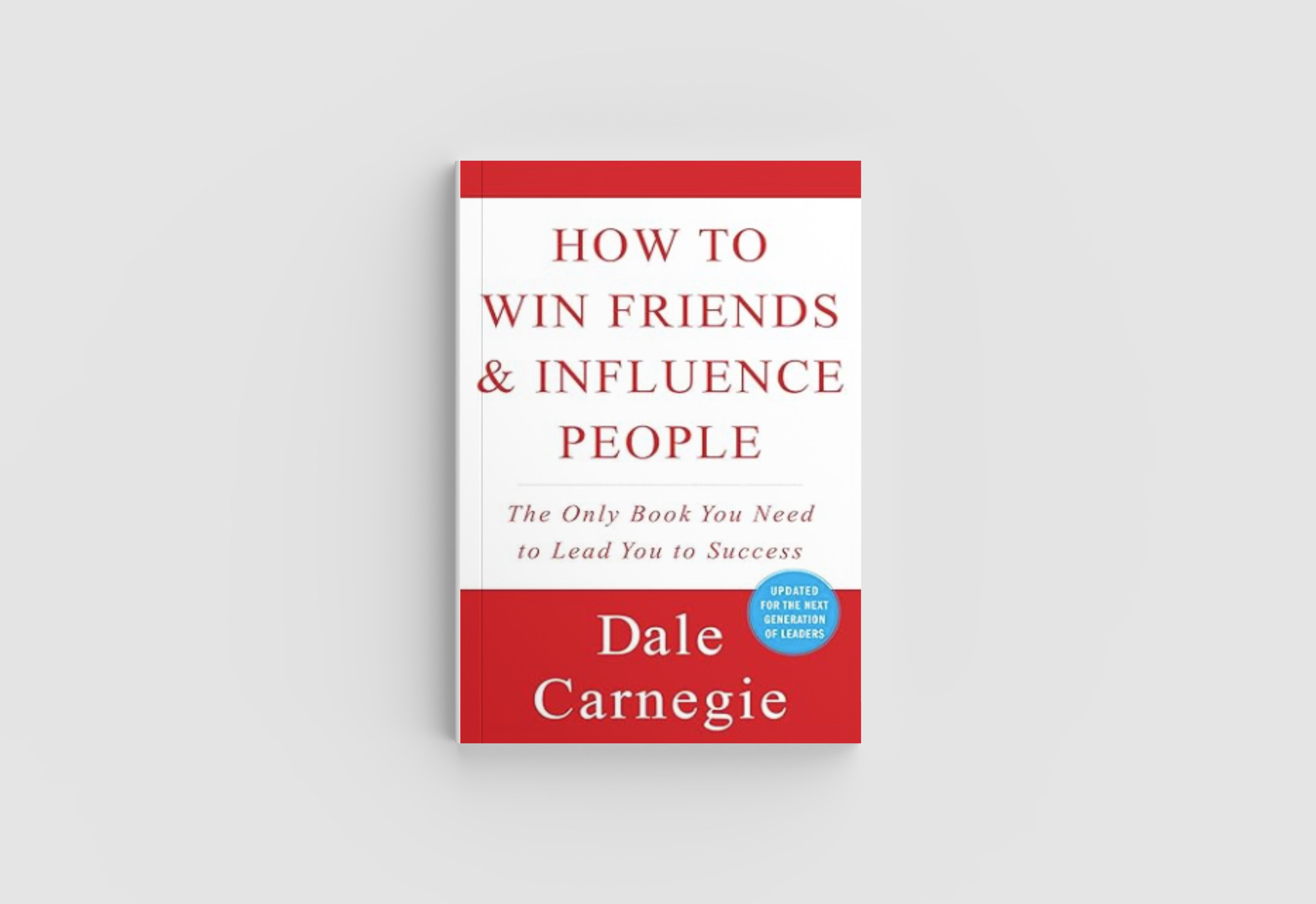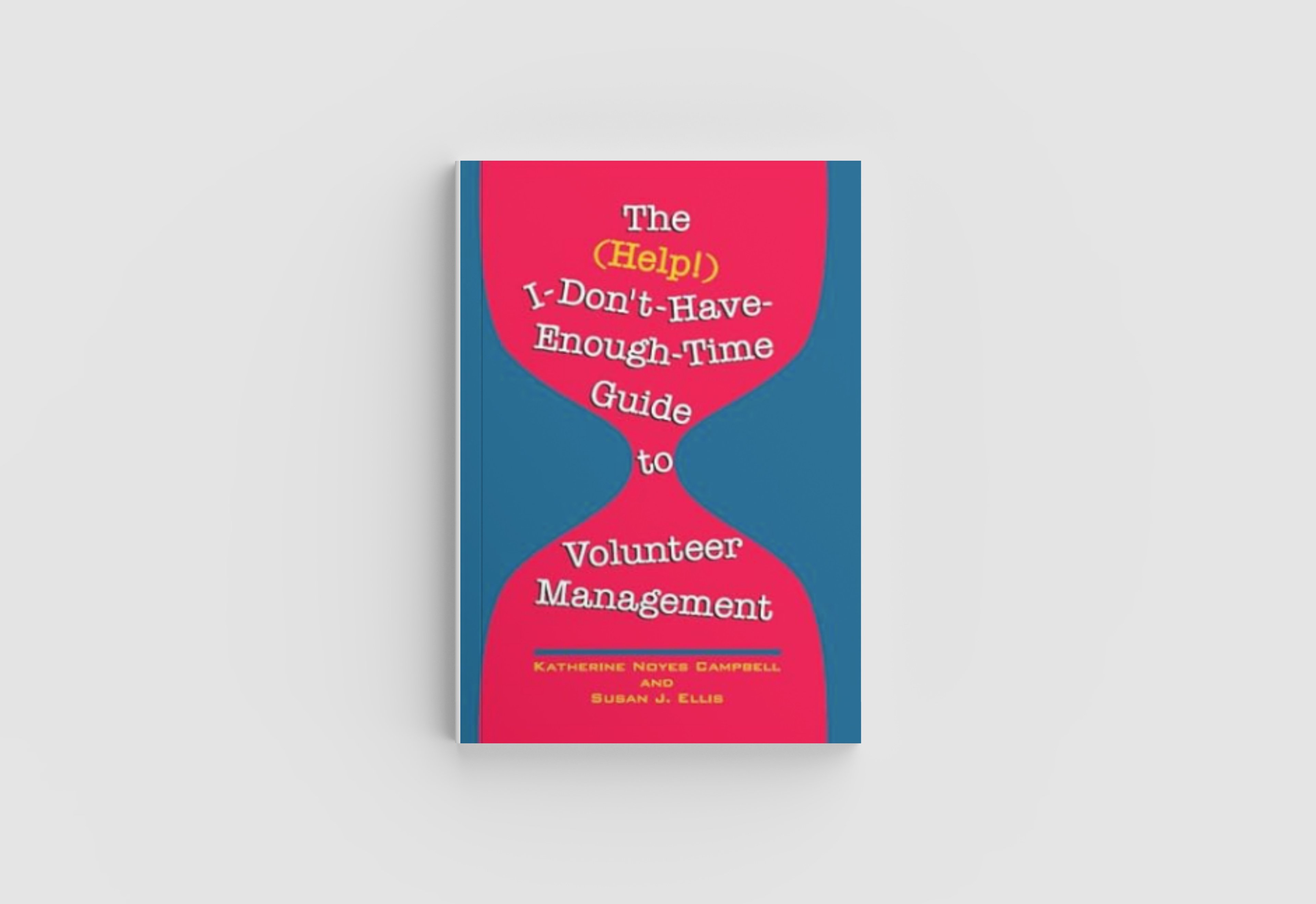BETTER IMPACT BOOK BITES: The 5 Languages of Appreciation in the Workplace
This Month's SelectionThe 5 Languages of Appreciation in the Workplace: Empowering Organizations by Encouraging People, by Gary Chapman and Paul...
5 min read
![]() Nicole R. Smith
Mar 20, 2024 8:00:00 AM
Nicole R. Smith
Mar 20, 2024 8:00:00 AM

This Month's Selection
Never Split the Difference – Negotiating As If Your Life Depended On It, by Chris Voss (Author), Tahl Raz (Author)
The fourteenth in a series of Better Impact Book Bites
A taste of great books worth consuming.
There is an art to negotiation and many of us are unskilled at it. I know I myself, especially when it comes to salary, have been just so happy to have a job that I took anything I was offered. Many of us are afraid to negotiate because it is either a hassle, it makes us nervous, we don’t want to seem greedy and worst of all, the offer (whatever it is) may be rescinded altogether. This book takes the fear out of negotiation. It helps you get what you honestly believe you deserve, as well as what to do if you don’t. This book in conjunction with January’s Book Bite – Expect to Win will make you a force to be reckoned with in the workplace.
This book has 10 chapters and is an easy read. The author is a former FBI hostage negotiator where negotiation for him was literally a matter of life and death. He HAD to be good at his job because someone’s life was on the line. After retiring, he realized the same skills used in the field helped him in everyday negotiations in life as well and decided it was worth sharing.
Chapter 1 is an overview of all the lessons to come in the book. From active listening to tactical empathy, it lays the foundation for everything you are going to learn.
This chapter reveals the difference between a good negotiator and a great negotiator, how committing to an assumption can be your greatest mistake and my personal favorite, negotiation isn’t a battle of arguments, but it is a process of discovery. I am glad the author “level set” with this in the beginning because it changed my mindset of what negotiation actually is at the very start. I believe it helped me absorb the information to come differently because I let my guard down to be able to hear what he said regarding negotiation through the lens of understanding and not preparing for battle.
This chapter discusses how genuine empathy is crucial in negotiation. It reveals that the why someone will say no to an agreement is more important to why they will say yes, so working to discover what those barriers may be are important. It encourages us to be comfortable with silence in negotiation. Give people time to think and respond even when it is uncomfortable. My personal favorite about this chapter is bring up the worst things people can say about the agreement to get them out of the way. It can be disarming and a good way to break the ice. After I read this, it reminded me of the phenomenal last battle in 8 Mile where….oh wait, I can’t tell you what happens. You just really need to watch the movie…it displays this principle expertly.
What????? Try to get people to say no first? This chapter sheds light on how there is safety in no. Obviously, the end game is to get a yes, but not from the start. Aiming for the no first, prevents the no disguised as a yes. You know, we have all done it; just said yes to get someone to go away, but really have no intention to follow through? That disguised yes, is death to the negotiation. My favorite lesson from this chapter (as I have fallen victim to it in the workplace) is learning the magical sentence that guarantees your e-mails will never be ignored again!
This chapter explains the vast difference between You’re Right and That’s Right. One initiates change and the other placates. Definitely one of the most powerful chapters in the book. It also reaffirms what we all know to be true; someone who feels understood and positively affirmed will be more apt to negotiate any situation than one who doesn’t.
Concrete, tangible tactics to successfully negotiate salary are addressed in this chapter. I mean, I almost wanted to just read this chapter first, but it builds on the previous chapters so don’t skip those! I also LOVE this chapter, because if affirms the first line in my book (Game On! Relentlessly Pursue Your Dreams), life isn’t fair. It cautions us about the word fair and how it is an emotional term people exploit to get the other person on the defensive and gain concession. Beware that it isn’t used on you!
As manipulative as this may sound, it isn’t really. To me, this chapter was more of emotional intelligence. My favorite advice offered in this chapter is when feeling attacked in a negotiation, avoid angry emotional reactions. Take a moment to breathe and then ask a calibrated question (which he gives guidance on how to do.) I believe it to be sound advice as emotions tend to get us in trouble or can make a situation worse than it really is! This chapter also reveals something we often overlook; although we may be negotiating with one person, there is usually a team of people behind the deal. He gives instruction on how to ask questions to reveal how the deal will affect everyone on the team so as to avoid being blindsided by someone who the negotiation may impact negatively that you never took into consideration.
Introducing the 7-33-58 percent rule. He is referring to communication, my friends. In negotiation, communication is key. 7% is by the actual words escaping someone’s lips. 33% is the tone in which the words were expressed and 58% is nonverbal. Key point: Negotiations should be done in person as much as possible and if not possible, at least on video. If not, you miss out on ½ of the communication cues you need to be successful in a negotiation. This chapter also discusses the rule of three and how to use it to gain clarity into what the other party is thinking and/or feeling during the negotiation process.
One of the most powerful lessons of the entire book is discussed in this chapter. The author reminds us that the challenge isn’t with the person on the other side of the table, but with the situation at hand, and all energy should be expelled towards solving the challenge. This keeps you from essentially fighting dirty and attacking the person and losing focus on what is important. What I love about this chapter is it describes the different types of negotiation styles and then helps you learn how to identify them. It’s almost like taking a personality test so that you know how to work with others in the workplace. Lastly, the author expresses the importance of being prepared before walking into any negotiation. Doing your research can be the difference between a successful and a failed negotiation.
What didn’t you know that you didn’t know? The point of this chapter is to find out. This is that piece of information that you don’t know that can dramatically affect a negotiation. Listening to what people aren’t saying, asking questions that reveal important information that you didn’t even know you needed. That piece of information that always existed, but you didn’t notice because you weren’t looking for it. How about that to end the book?
After reading this book, I felt empowered to take on the world! I was trying to negotiate everyone; my husband, people at work, my mom…even the dog! I caution you as this book will make you stand up and walk around like Thor. Take it in small bites. It may not always work how you would like it to the first, second or even third time around. However, like everything else in life, practice makes perfect. The more you practice, the better you will get at it. Similarly to Expect to Win, this book gives sample scripts, questions and handouts to help you sharpen your skills. Soon, you will be negotiating like a boss…or who knows, even to become the boss.
Featured Posts

This Month's SelectionThe 5 Languages of Appreciation in the Workplace: Empowering Organizations by Encouraging People, by Gary Chapman and Paul...

This Month’s Selection: How To Win Friends & Influence People By Dale Carnegie The sixth in a series of Better Impact Book BitesA taste of great...

This Month’s Selection: The (Help!) I-Don't-Have-Enough-Time Guide to Volunteer Management By Katherine H. Campbell, CVA & Susan J. Ellis The fifth...